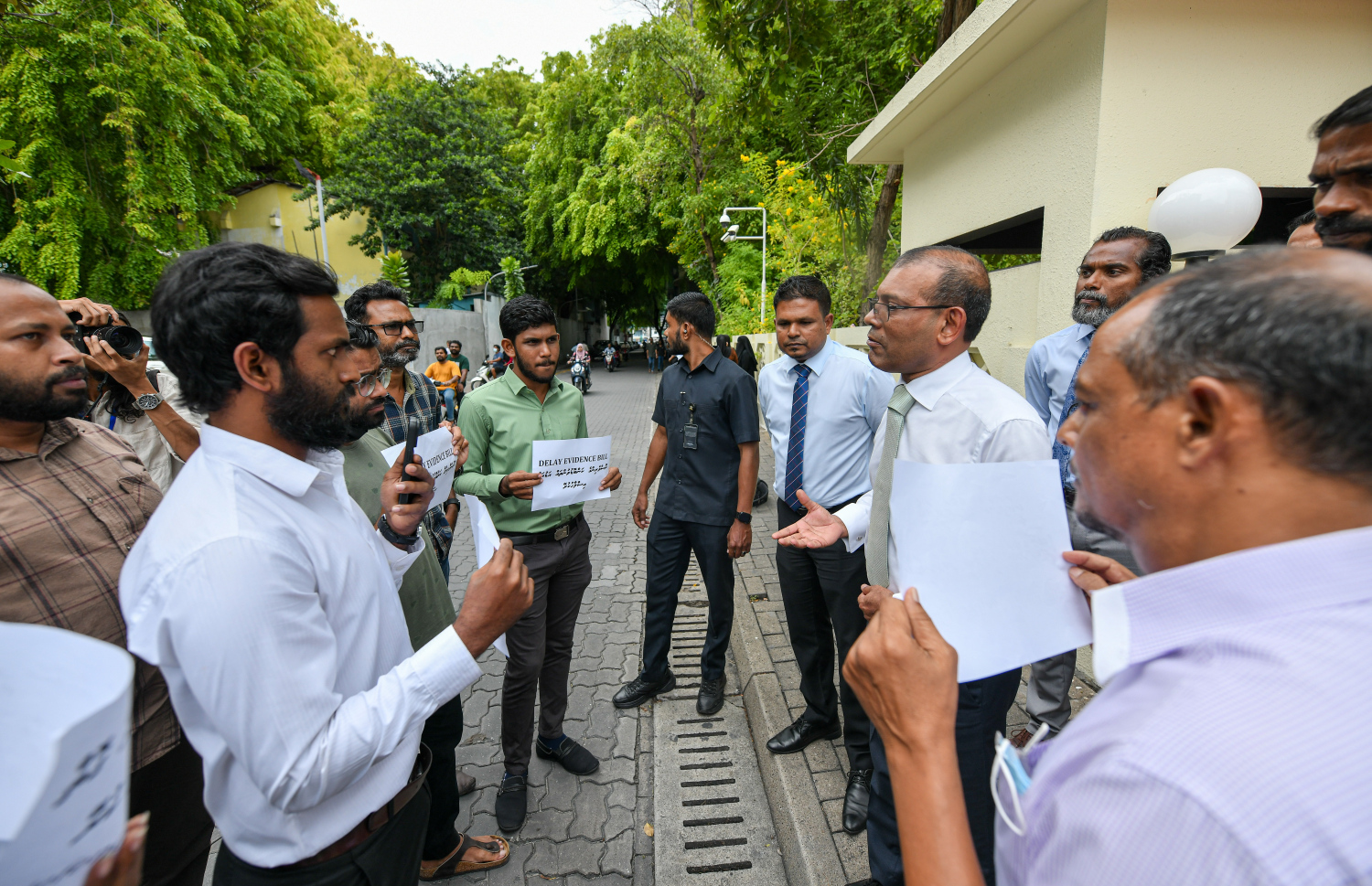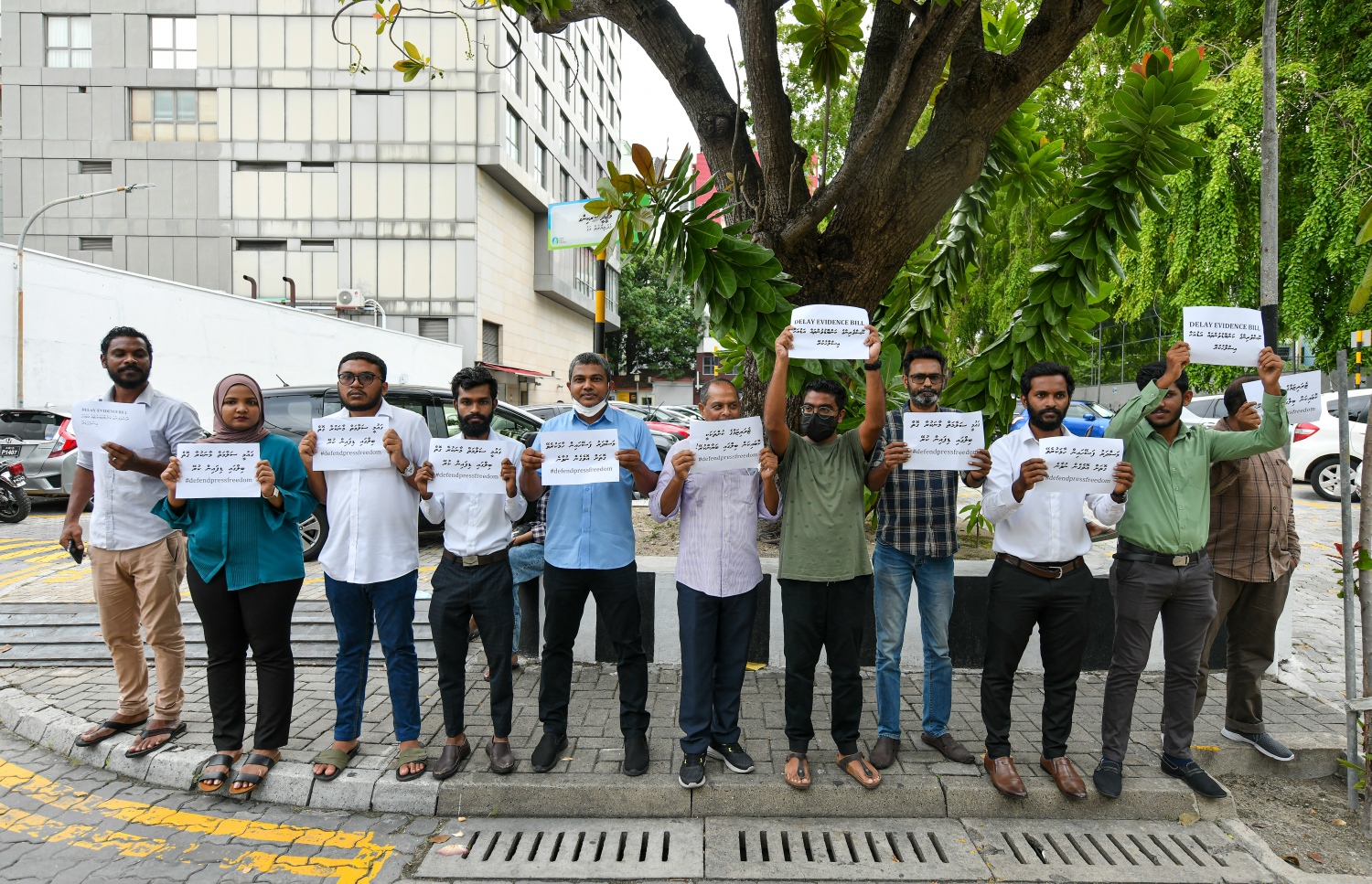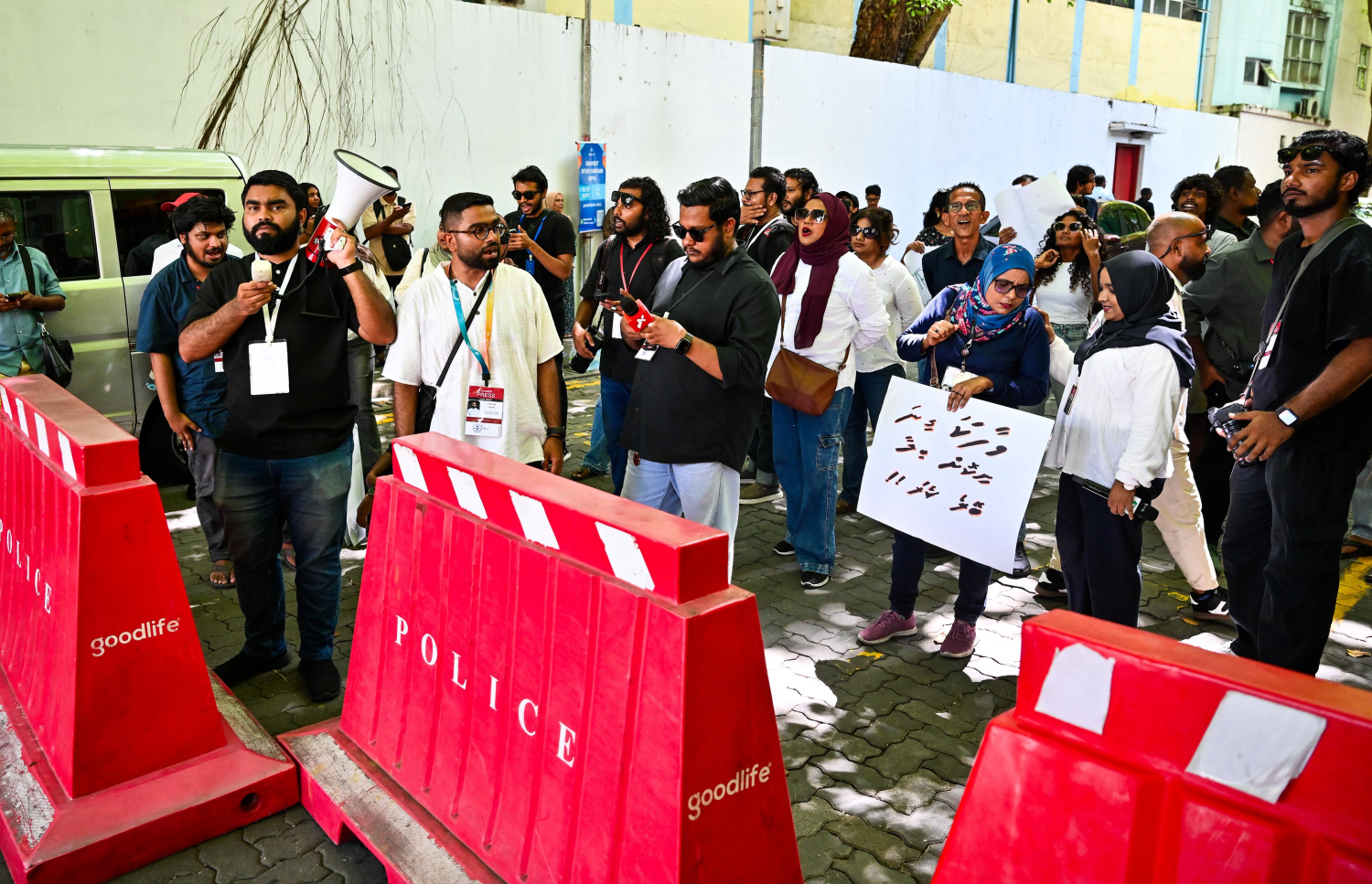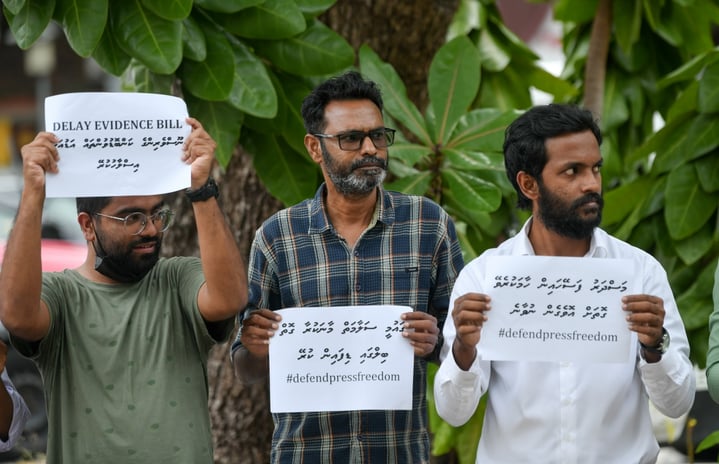The Maldives Journalists Association (MJA) has said that the proposed amendments to the Evidence Act may see investigative journalism and acts of whistleblowing come to a halt. The Evidence Act came into effect in January 2023 during the final year of former President Ibrahim Mohamed Solih's term.
Ruling People's National Congress (PNC)'s Bilehdhoo MP Ahmed Aslam submitted the bill of amendments to the Evidence Act to Parliament yesterday, with the first reading having been conducted during yesterday's Parliament sitting.
Some of the amendments include situations where journalists are to disclose their sources, with it previously being that a request can be submitted to any court in order for sources to be disclosed. However, the amendment states that such an order can only be issued by the High Court, with the ruling to be decided within 24 hours.
And so, MJA expressed concern last night via a statement, which said that conducting journalism and the freedom to use communicative resources by individuals is defined in Article 28 of the Constitution.
The freedom to disseminate news, information, views, opinions and ideas is stated in Article 28, along with it not being required by anyone to disclose a source that leads to the publication, dissemination or expression of information, said MJA in their statement.
Their statement also reads that a constitutional right can only be restricted by an Act only in order to solve a matter that endangers the community, with the restriction to be kept to a minimum in order to solve such a situation.

MJA said they believe the current rules and regulations in requiring the disclosure of a source by law in the Evidence Act are against the Constitution's vision, with them expressing concern when the act originally came into effect as well.
MJA said the amendment including an order to be issued with the High Court as the starting stage is a good provision and one that they have been advocating.
However, the result of the amendments might be the constitutional rights of journalists being withheld, the restriction of the right to gather information and the spreading of fear within the public in exercising such rights and other such situations arising, as was said in MJA's statement.

As per MJA's statement, they do not believe the publication of confidential information without permission are grounds to disclose sources. They said that it might see investigative journalism and acts of whistleblowing come to a halt. They also do not believe in the disclosure of sources being required due to the overthrowing of a government by force.
MJA's statement said that they also do not believe in allowing a defendant to request a journalist's source. It went on to say that while disclosing a source may be in the best interest of the state, the opportunity for a defendant to request a journalist's source might open doors for crime organizations to tell journalists to reveal their sources as a means of instilling fear.

The MJA believes that a source should only be disclosed in the situation of immediate danger to one's body, life or property, and that too within strict regulations. They also expressed concern and condemned the act of not discussing such provisions with journalists and the MJA. They called for such matters to move forward after holding discussions.
As the act currently stands, a journalist or their place of work are not required to disclose their sources, or reveal any information that may expose a source, if a promise of confidentiality has been given to the source by the journalist or their organization.
And even though Article 136 of the Act states as such, those who issue a request for the order, such as by investigative parties, the Prosecutor General, those who are accused of crimes or defendants, will have it granted by the court in cases related to acts of terrorism or national security.
However, the Act states that action can only be taken if it is known that an act of terrorism or threat to national security has happened, is going to happen or is ongoing.
Along with these, while the act specifies the situations where a journalist's source can be revealed, journalists biggest worry initially was the act not specifying the definition of national security. The current bill of amendments did not specify as such either.




